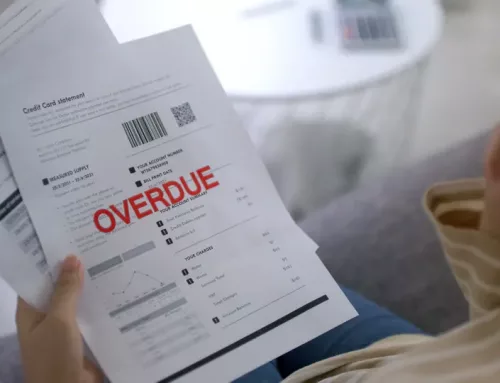
Considering a Chapter 13 Bankruptcy Case
Before you file for reorganization bankruptcy, you must consider all of your debts, including those that must be paid within and outside of the debt repayment agreement. In addition to this, you must also be aware of other debt-relief options and decide on the best path moving forward.
If you want to know how to file properly or if you have questions on filing bankruptcy, seek the legal services of a local attorney experienced with bankruptcy proceedings. A reliable Phoenix bankruptcy lawyer can answer your questions about the legal process and help you have a fresh start in life.
If you plan to file for bankruptcy or require preliminary bankruptcy information, give us a call.
This article will discuss bankruptcies under Chapter 13. It is composed of the following sections:
- Basics of a Chapter 13 Bankruptcy Declaration
- Questions to Ask Yourself Before Declaring Bankruptcy
- Qualifying For and Declaring Bankruptcy under Chapter 13
- Learning More About the Debt Repayment Plan
- Types of Debt that Must Be Repaid Under Chapter 13 Bankruptcy
Basics of a Chapter 13 Bankruptcy Declaration
It is not unusual for most people who file for bankruptcy to be confused with the ins and outs of the bankruptcy procedure and the necessary supporting documents. This can be very stressful. If you are considering bankruptcy, promptly get in touch with a local attorney from a trusted law office.
The different types of bankruptcy have advantages and disadvantages. If you are seeking debt relief and have decided to file bankruptcy under Chapter 13, you will be required to propose a payment plan that should enable you to repay debts in three or five years.
A Chapter 13 filing is longer than common forms of consumer bankruptcy (such as a Chapter 7, which is often best for unpaid medical bills, credit card debts, and personal loans). However, in certain cases, bankruptcy Chapter 13 may still be the best option. Additionally, your filing will appear on credit reports for a relatively shorter period of time, and credit scores will still eventually improve.
Questions to Ask Yourself Before Declaring Bankruptcy
Getting a credible Arizona bankruptcy lawyer would help you get familiar with personal bankruptcy and the entire bankruptcy process.
Bankruptcy laws detail how a filing helps in avoiding foreclosures, but note that certain requirements must be met before you can declare bankruptcy. A Chapter 13, for example, is dubbed as wage earners bankruptcy due to the regular income requirement that some filers fail to meet.
To know if bankruptcy Chapter 13 is the best choice for you, ask yourself the following:
- Do I want to keep specific assets?
- Am I behind on my car payments or mortgage and wish to make these up?
- Do my debts include child support, student loans, or recent taxes that most likely cannot be discharged by Chapter 7 or bankruptcy in general, but paying off what is owed from other lender types would help wipe off these debts?
- Do I have a co-signer on any account in arrears?
- Do I want to have my co-signer protected while I pay off what I owe and clear the co-signed debt?
The requirements, qualifications and the entire legal process can be confusing and overwhelming. As such, it is best to get the legal services of a trusted local attorney who can explain to you how to file correctly. Filing for bankruptcy is not easy, but it is something that can give you a fresh start in life. All it takes is a reliable legal aid and the courage to take the first step.
Qualifying For and Declaring Bankruptcy under Chapter 13
If you qualify for a Chapter 13 bankruptcy filing, you will have to go through the following steps:
- Meet with a seasoned legal professional from a local bankruptcy firm and a qualified credit counselor for initial consultations. Discuss finances and debt reorganization plans.
- Work with your legal counsel and document your eligibility to a bankruptcy trustee, who will then administer proceedings. The goal is to acquire court approval to repay secured and unsecured debts while retaining your assets, or even have certain debts forgiven.
- Draft a debt repayment plan, fill out the bankruptcy forms, and prepare the paperwork that you are required to file. Formally submit your bankruptcy petition to be able to benefit from the automatic stay and prevent lenders from attempting to contact you for repayment.
- Submitting your proposed payment plan 14 days after filing the petition and work on making payments within 30 days from filing, even if the plan has not yet been approved by the bankruptcy court.
- Go through the scheduled meeting with creditors and subsequent confirmation hearing, where your payment plan is confirmed. Prior to the completion of the bankruptcy, a debtor education course is often required.
Before knowing if filing for bankruptcy under Chapter 13 is the best choice for you, it might be helpful to first check if you qualify. For you to be able to file for bankruptcy under this, the following must be met:
- There must be regular income
- Total unsecured debt must be below $394,725
- Total secured debt must be below $1,184,200
- Tax filings are regular and brought current
- No Chapter 13 has been filed in the last two years
- No Chapter 7 has been filed in the last four years
- In the last 180 days, no bankruptcy petition has been filed and dismissed because of failure to appear or comply with orders from the court
Learning More About the Debt Repayment Plan
Pursuant to relevant bankruptcy laws, a debtor who wishes to keep the property and avoid foreclosure must pay off arrearages on your real or personal property. This is especially applicable to keep a secured asset, such as a car or home. Some bankruptcy courts will require mortgage payments to be made directly to lenders, while others need you to include them in your debt repayment plan.
Bankrupt individuals are often given three or five years to pay back what is owed, with higher income filers usually paying more per month. The period of time will depend on both the median income and your monthly income, six months before filing a bankruptcy petition. Additionally, electricity, phone, tax, and child support payments are often made outside the payment plan.
To avoid mistakes, it is vital to seek legal assistance early on. Our diligent and dedicated Phoenix, AZ bankruptcy lawyers will assist you on how to file, explain relevant state law, and help you have a successful bankruptcy filing.
Types of Debt that Must Be Repaid Under Chapter 13 Bankruptcy
It is generally recommended to seek legal advice from bankruptcy attorneys in Phoenix, AZ before you work on the necessary paperwork, particularly the debt repayment plan. It is something that should be taken very seriously to avoid stressful proceedings.
The trustee in bankruptcy filings will work with you to allocate payments to creditors, particularly the following:
- Missed child support or alimony payments, unpaid federal or state taxes, wages owed to employees, and other priority debts that you must pay in full.
- Secured debts that are due to be paid in full within the duration of the repayment plan, although a home or car equity loan may be crammed down to minimize the balance (depending on the actual circumstances)
- Secured loans that will not expire during the payment plan’s duration, such as a tax lien
- The cumulative amount that lenders of non-priority unsecured debts would be receiving if you filed for Chapter 7 bankruptcy instead
- Administrative costs associated with filing for bankruptcy, such as filing, bankruptcy trustee, and attorney fees
In general, payments by bankruptcy trustees are attributable to the taxpayer who filed for bankruptcy. This can apply to deductible taxes or business expenses that the trustee has disbursed. In particular, if your Chapter 13 petition for bankruptcy is catching up on home loan arrears, there is a deduction ‘hidden’ within your trustee’s disbursement records. Seek legal advice if you wish to know more about this.
Contact our Phoenix Bankruptcy Law Office Today!
If you want to secure your assets while paying the debts you owe, declaring bankruptcy under Chapter 13 could be the best path to take. However, to be sure that you are filing for bankruptcy correctly, you must consult with reliable lawyers before taking any concrete steps.
Our hands-on and hardworking Phoenix bankruptcy lawyers can help you learn more about this. Call us at Phoenix Fresh Start Bankruptcy and avail of legal representation and assistance from a trusted bankruptcy law firm.











